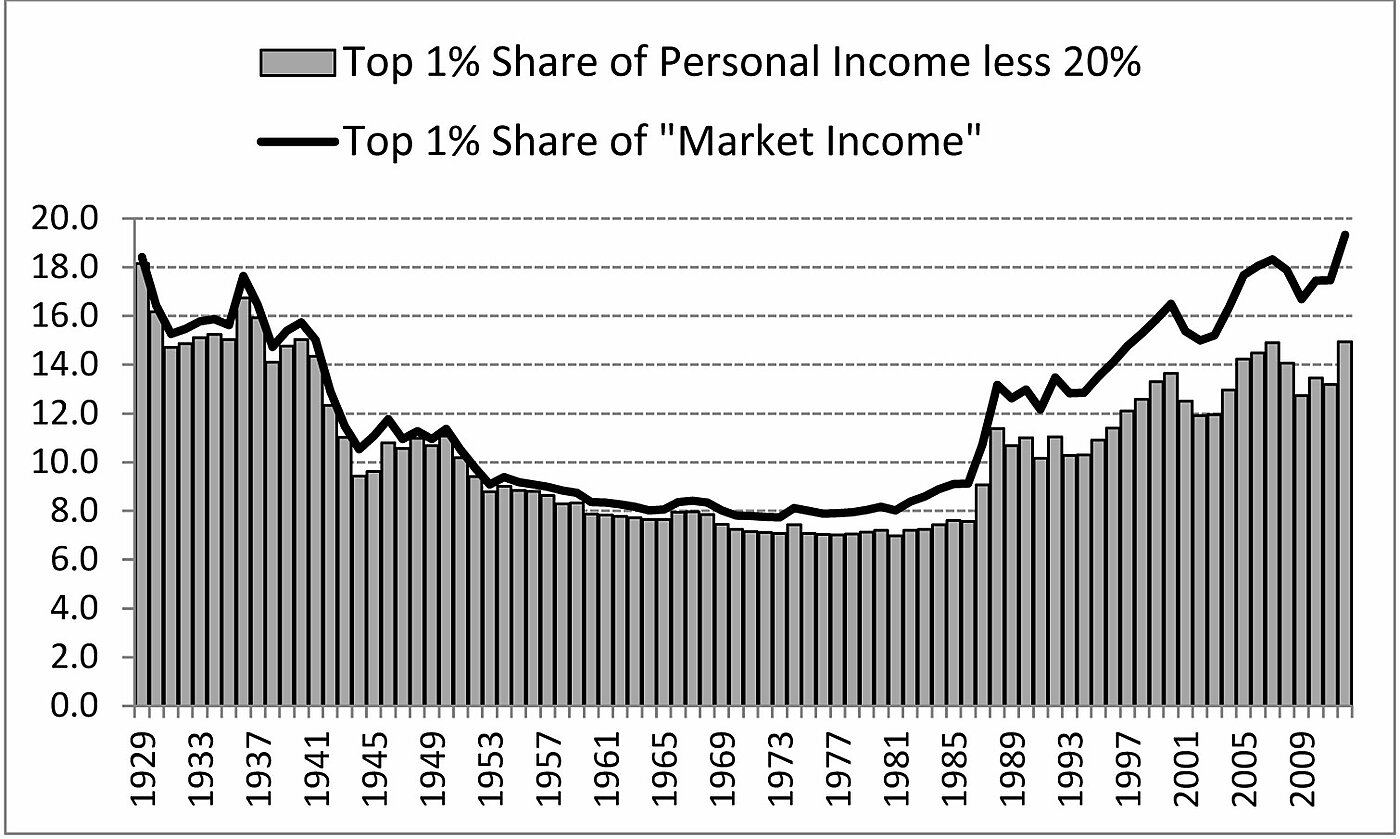A couple weeks ago I experienced an embarrassing bout of “premature e‑publication,” having unknowingly made public a mere fragment of a post-in-progress, consisting of a quotation that I thought I had merely saved for future editing. That involuntary emission elicited some puzzled inquiries and speculation concerning just who the quote was from, and what its point was, for which, my humble apologies.
Here is the passage again:
Unlike the income tax, prominent lawmakers from both parties recognized the need to overhaul the laissez-faire, crazy-quilt way that money was created and interest rates determined. Private “national” banks were still in charge of issuing currency and loaning it out, in blithe disregard of the panics that resulted every few years–the latest in 1907–from such unpredictability. Everyone familiar with the problem favored some kind of regulated coordination among banks.
The words are, in fact, not Paul Krugman’s (as one reader speculated). Nor are they from any economist. They are from Michael Kazin’s book, A Godly Hero: The Life of William Jennings Bryan, which I’d decided to read in order to gain a better understanding of the man who played an important (if overlooked) part in shaping the modern U.S. currency system.
To be honest, even a few initial dips into Kazin’s book where enough to persuade me that his was not a work that I was likely to gallop my way through with bells on. For one thing, in discussing the Scopes trial Kazin dismisses Mencken as an anti-semite, which is, to employ a Menckenesque term (and no matter what Charles Fecher says), a calumny, and a threadbare one at that. For another, he considers the fact that Bryan anticipated much of FDR’s New Deal a reason for us to revise our opinion of the man upward.
So Kazin is no economist–or at least isn’t enough of one to seriously reckon with the predictable consequences, for an economy faced with mass unemployment, of policies aimed at boosting prices by curtailing output. But he is a professional historian, with a teaching post a Georgetown U., who as such might be expected to do a little homework before committing to print a statement as misleading as the one I’ve quoted above–not to mention one brandishing such a doozy of a misplaced modifier.
Kazin, it seems, believes that panics were somehow caused by private bankers issuing currency, as if the problem had been a surfeit of that nasty private paper. In contrast every economist or economic historian worth his weight in leftover Chautauqua tickets, whether he be current or of the late 19th century, knows or knew that the problem back then was one of currency shortages, where the shortages, far from having been the bankers’ fault, were a result of government regulations dating from the Civil War. Those regulations tied the stock of national bank notes to that of outstanding U.S. government bonds, the supply of which steadily declined as the century wore on, while making it it unprofitable for state banks to issue any notes at all. In Canada currency also consisted of the notes of private banks. But because the Canadian government imposed no comparable limits on its banks’ ability to issue notes, Canada was spared both currency shortages and associated panics.
U.S. reformers naturally tried at first to get rid of the regulations that were the true cause (or at least one of them) of U.S. financial crises. So it’s something of a kicker to realize that no man did more to oppose such reforms, “in blithe disregard of the panics that resulted every few years,” than Mr. Kazin’s godly hero.

